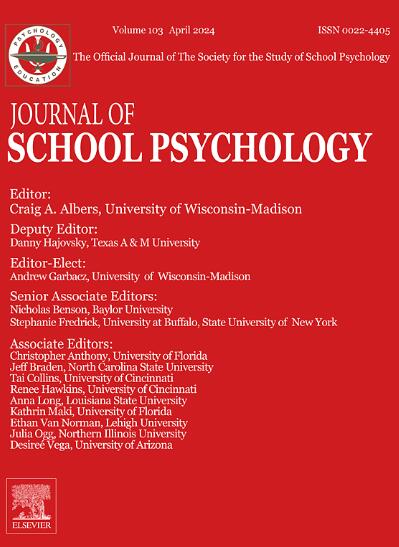Immigration stress and internalizing symptoms among Latinx and Asian American students: The roles of school climate and community violence
Abstract
Immigration-related problems and stressors are prevalent and pressing concerns among Latinx and Asian American school-age youth. Youth fears related to family deportation have been associated with adverse mental health outcomes. This study used an ecological framework to examine the impact of immigration stress and school- and community-level resources and protective factors on Latinx and Asian American youth internalizing symptoms. The sample included 1309 Asian American and 701 Latinx students (N = 2010) who participated in a routine school-based mental health needs assessment survey. Multilevel regressions analyses revealed that first-generation youth, Latinx youth, and female youth were more vulnerable to experiencing immigration-related problems and worry. Student perceptions of negative school climate and community violence were associated with greater internalizing symptoms regardless of immigration worry. Moderation analyses revealed that immigration-related problems and worry were positively associated with internalizing symptoms and that this relationship did not differ by race/ethnicity. However, immigration worry was a particular risk factor for students who perceived their neighborhood community as safe. Findings highlight that a sociopolitical climate that sows immigration-related challenges fuels youth distress and that students' experiences of their community environment can play an essential role as a psychological resource.

 求助内容:
求助内容: 应助结果提醒方式:
应助结果提醒方式:


